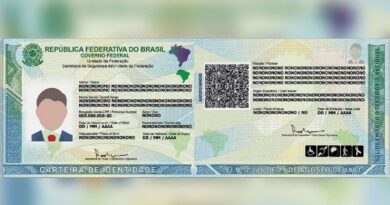How to Spot Facebook Marketplace Scams 2023
Facebook Marketplace has over a million stores and 1 billion active users. It has become a go-to place for consumers to sell or buy everything, including smartphones, furniture, beauty products, games and used cars. With increasing popularity among users, Facebook Marketplace scams are also on the rise. Using the tips below, you can avoid a mouth-watering too-good-to-be-true deal in a superior chromebook and other items and save yourself from a Facebook Marketplace scam.
Facebook Marketplace is available for everyone to buy, sell or trade goods. Since Facebook doesn't verify sellers, scammers can post as someone else and trick customers into buying fake or defective items. Unlike Amazon, Facebook Marketplace bridges the gap between buyers and sellers and connects them via Messenger. This makes the buyer vulnerable and exposes him to a scammer.
Facebook Marketplace scams can look convincing. But once you catch a few red flags, it's easy to connect the dots and spot fraudsters on the platform. See how to save time and money by spotting scams on Facebook Marketplace.
Check seller profile
Let's start with the basic checklist. Before sending a message to a seller, check the seller's information page. If you don't see a profile picture, image banner, or past Marketplace listings, the seller is most likely a scam and is trying to scam you on the platform.
Low price on a high ticket item
A seller promises a new one high end android phone why US$ 200? Or did you find an AirPods Max for US $ 100, which usually sells for US $ 549? You shouldn't fall in love with listings with a low price for expensive items. Even the best Black Friday deals on Amazon don't offer such steep discounts on popular items. You will receive a counterfeit product or you will not receive it at all.
You should also keep an eye out for these products. Some sellers may put a low price tag on it to get your attention and then try to sell you another high priced item or the same high priced item. The trick is known as bait and switch.
Sellers ask you to pay on another platform
You must only use trusted payment methods such as PayPal or Facebook Checkout to complete your purchase. These methods are protected by purchase protection and you will get a refund if you don't receive a product. If a seller insists on taking payments through Venmo, CashApp, or crypto, that's a red flag. Some sellers promise a discount for using another payment platform. Don't fall into these traps.
Buyers or sellers ask to use another platform for conversations
Both buyers and sellers should stick to Facebook Marketplace for communication. If a seller asks you to switch to another messaging app like Telegram or Signal, decline and avoid the scammer.
Sellers refuse to answer in person
Meeting the seller in person allows you to examine the product before you pay. If the seller lives in the same area or city and refuses to meet with you in person to verify the item, avoid such listings on Marketplace.
Even when you meet the seller in person, be sure to schedule the meeting in a public place during daylight hours. We also recommend bringing a friend or an expert to check the product.
Sellers ask for a small advance payment
Sometimes the seller may ask you to make a small payment upfront to keep the product. Chances are, the person will ask other shoppers to do the same for the exact product. If you rent a house or car, brokers may ask you to pay a deposit upfront to confirm the purchase. We advise avoiding these sellers, but if you choose to go ahead, please use the official Facebook Pay payment method.
The Facebook Marketplace has become the preferred place to post properties for rent. Avoid sellers who ask for irrelevant charges like background check fees or paperwork charges. If possible, visit the property or confirm with someone you know in the area. The Marketplace is full of fake sellers posting other people's rentals.
A buyer overpays a seller
In some cases, even sellers are tricked by thieves and criminals posing as buyers on Facebook Marketplace. See how the modus operandi works. When you list a product on Facebook Marketplace, a potential buyer shows interest and sends you more than the asking price.
The scammer uses fake checks, stolen credit cards, or counterfeit funds to send money. The buyer admits the error and asks you to send the remaining amount as a refund. When your credit or debit card is reported to the authorities as stolen, the payment on your account is reversed, leaving you with nothing.
Buyers ask you to send the product before payment
As a seller, you should avoid buyers who ask you to ship their product before making payment. These scammers may convince you that they need to verify the product and its working condition before sending you payment. So they disappear after receiving the package in an abandoned place.
What to do if you get scammed on Facebook Marketplace?
Facebook is aware of the increasing scams on Marketplace. The social giant created a Purchase Protection policy to help you get a refund. Covers the following scenarios:
- You have not received the item.
- The product is damaged or significantly different from the description.
- The seller did not follow Facebook's refund policy.
You can also report these sellers to Facebook:
- Go to the product listing page on Facebook Marketplace.
- Hover over the seller's profile picture.
- select Report in the floating menu.
- Choose a reason to report the seller.



